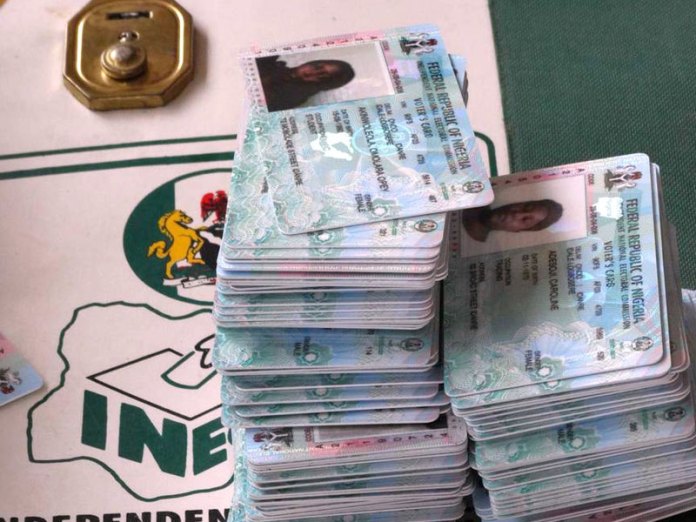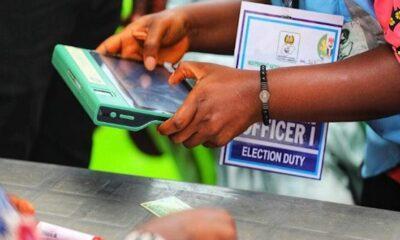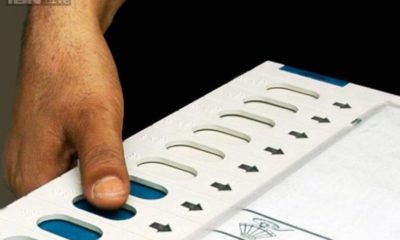The Independent National Electoral Commission (INEC) affirmed that over 1 million additional voters have completed their online pre-registration for the ongoing nationwide Continuous Voter Registration (CVR) within the last four weeks across the country.
INEC’s national commissioner, and chairman, Information and Voter Education Committee, Festus Okoye, said this through a statement released in Abuja on Monday.
Of the 1 million new eligible voters, 259,450 people have completed their registration in Osun State and it is currently been followed by Edo state with 98,286 new voters.
These two states were closely followed by Anambra state with 65,014, followed by Bayelsa with 63,250, and later Lagos State with 61,991, this came as Yobe with 1,893, followed by Sokoto State with 2,453, Jigawa 2,593, and Zamfara with 2,769 were some of the least stare registered.
The state’s distribution of the online fresh registration released by INEC in Abuja on Monday showed the weekly update provided by INEC for week four which also reveals that the commission received 1,135,395 applications.
The figure of the total applications received includes those for voter transfer, requests for replacement of Permanent Voter Cards, and update of voter information record, etc.
According to the commission, the distribution of the 1,135,395 total applications by age group showed that 740,063 of them were youths between the ages of 18 to 34 years.
The applications from the middle-aged of between 35 to 49 years old were 278,042; the elderly from 50 to 69 years were 102,578; while the old from 70 years and above were 14,712
The distribution by occupation indicated that artisan constituted 75,877 of the total applications; farming/fishing – 81,096; public servants -25,298; business -230,551; house wives -25,816; students 355,227; civil servants 44,093; traders 97,624; others/not specified 199,813.
Also, the distribution by gender showed that females constituted 492,449 of the received applications while males were 642,946 as well as showed that 12,274 of the applicants indicated to be persons living with disabilities.
Okoye, providing an update on the online pre-registration which started nationwide on June 28, disclosed that the commission, also on Monday, commenced physical registration at its 811 state and local government area offices nationwide.
According to the statement, “As of 7 am today, Monday, July 26, the number of new registrants has risen to 1,006,661. The detailed distribution of the registrants by age, State/FCT, gender, occupation, and disability for week four of the exercise has been uploaded on the commission’s website and social media platforms.
“However, the distribution by age still shows that 740,063 (or 73.5 percent) are young Nigerians between the ages of 18 and 34. As earlier announced by the commission, physical or in-person registration begins today, Monday, July 26 at our 811 state and local government area offices nationwide.
“The exact locations of the designated centers have already been uploaded to our website and social media platforms. For further details, citizens are encouraged to contact our state offices through the dedicated telephone numbers provided in the uploaded publication.
“‘Nigerians who pre-registered online can now complete their registration at those centers based on scheduled appointments. In addition, other Nigerians who prefer to register physically/in person can now do so at those centers.
“Both online pre-registration and physical/in-person registration will continue simultaneously until the suspension of the CVR exercise on June 30, 2022, to enable the commission to clean up the data and compile the voters’ register for the 2023 General Election.”
Okoye appealed to all citizens who wished to register to approach any of INEC’s state or local government area offices nationwide to do so, as the commission entered the next phase of the CVR exercise.




 Naira4 weeks ago
Naira4 weeks ago


 Naira4 weeks ago
Naira4 weeks ago




 Naira4 weeks ago
Naira4 weeks ago




 Naira3 weeks ago
Naira3 weeks ago
 Commodities4 weeks ago
Commodities4 weeks ago


 News3 weeks ago
News3 weeks ago


 Banking Sector4 weeks ago
Banking Sector4 weeks ago
 Travel4 weeks ago
Travel4 weeks ago















